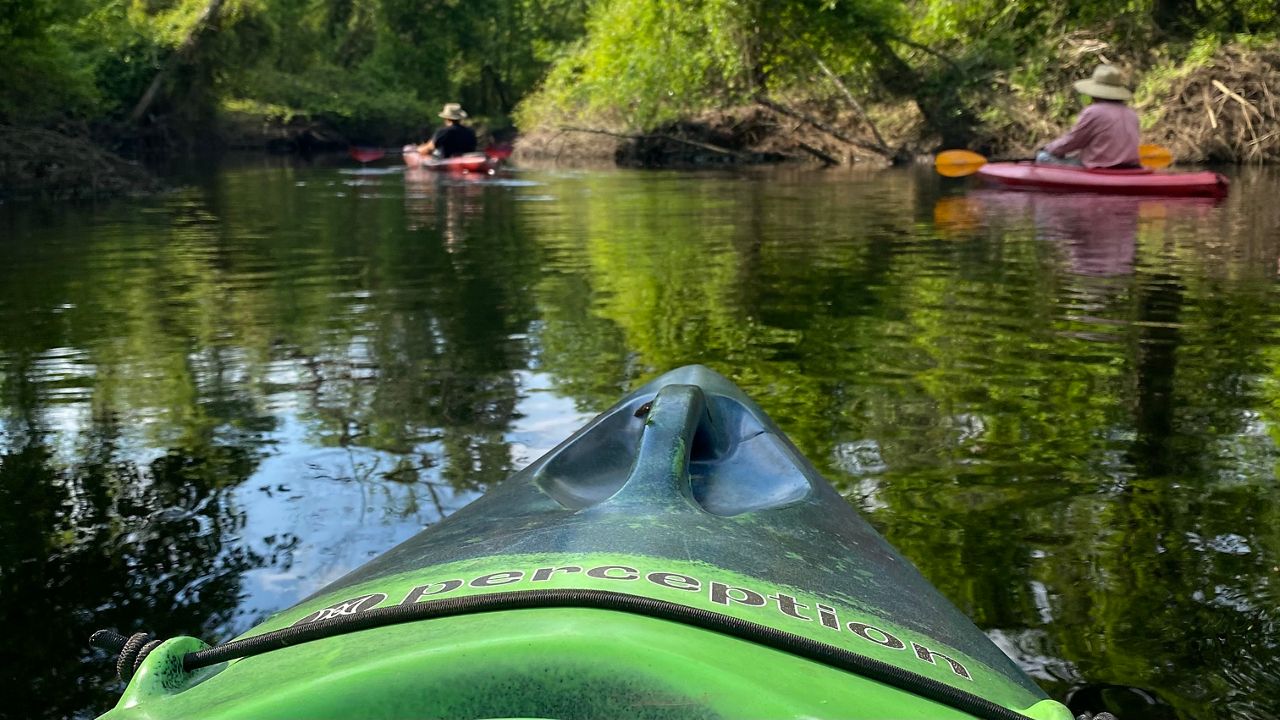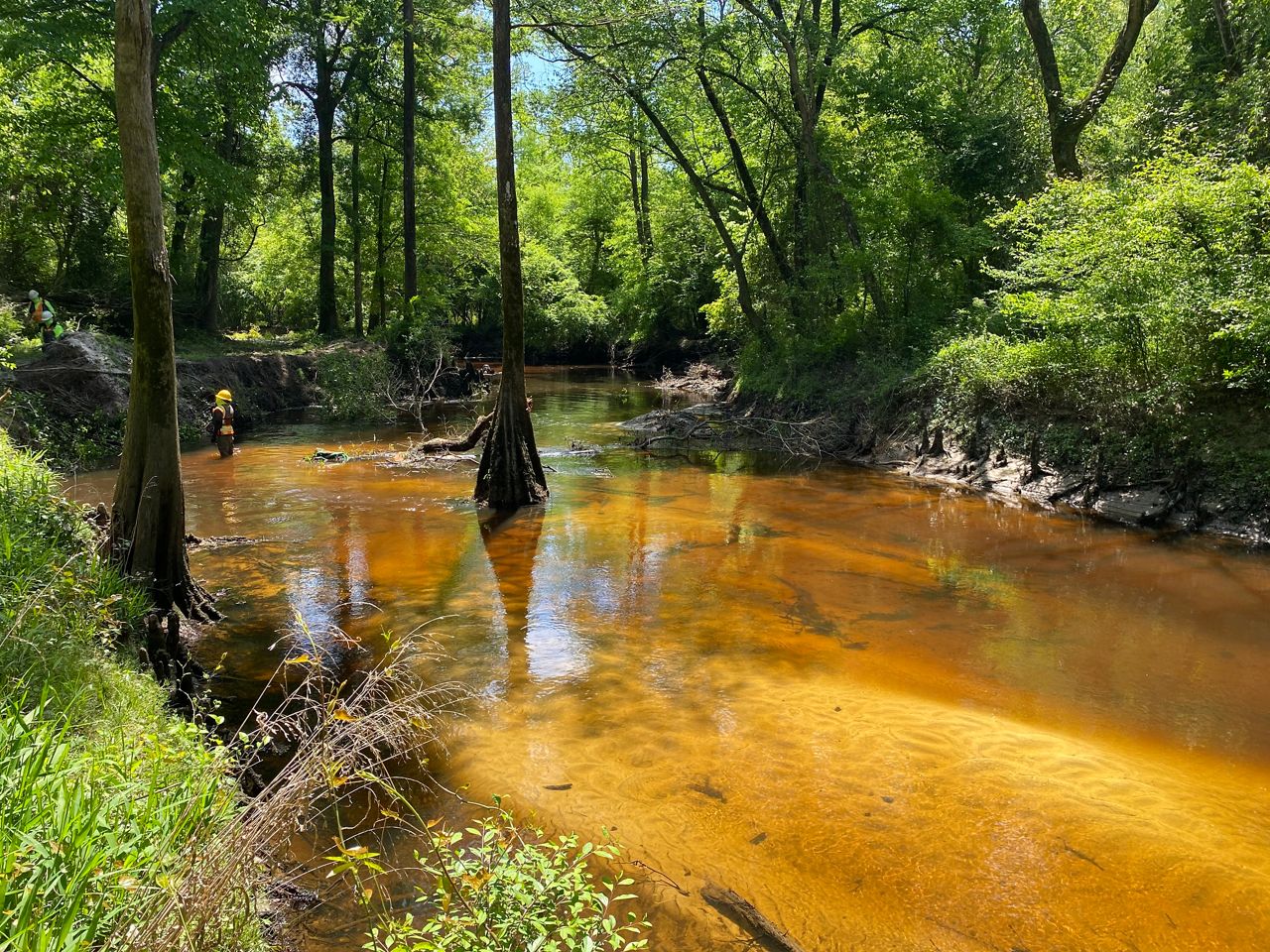SAMPSON COUNTY, N.C. — The river systems in Sampson County have been supporting the Coharie Tribe for generations.
Greg Jacobs, the Coharie tribal administrator, remembers his own father relying on the river for food through hunting and fishing. But in 2013, his longtime friend and fellow tribal elder, Phillip Bell, brought him word that over time through neglect and storms, the Coharie River had become an impenetrable swamp.
“The river couldn't take care of itself and so it got us to take care of it,” Bell said. “And if we can then, we will but it's going to take some help from someone more powerful than us.”
Although they don't depend on the river for their livelihoods anymore, the Coharie people still consider it sacred and its importance to the history of their tribe caused them to spring into action. They began clearing the river themselves one tree at a time – using borrowed chainsaws and kayaks to make slow progress through the miles of clogged waterways.

“It wasn't navigable by any kind of boat,” Jacobs said. “The kayaks you would've had to pull out on the bank and try to go through the woods to get around the debris.”
Bell said they brought in some teenagers with energy to burn to join in the clean-up efforts.
“There was about six or eight young men in our community. We got in there, and we cleaned out about a mile of the river and used old chain saws and mess that we could find,” Bell said. “With the tools that we had, to do what we did it was amazing.”
Jacobs looks at the rivers like the arteries of a heart and says when they're flowing smoothly, unobstructed, all is well but when they become blocked, the entire body is at risk and is no longer healthy.
“My ancestors that came down here knew the value of this river, they knew the value of it so well that this is where they stopped and they knew that the river would be nourishing to their families,” Jacobs shared. “It's agonizing to your mind that something so beautiful and something so useful, that we haven't paid it the attention that it deserves.”
At times Bell and Jacobs were up to their necks in water fighting to clear the river.
A storm could undo weeks of work in a single hour by uprooting trees on the sandy banks and causing them to fall into the river, completely blocking the passage.
“It was the bugs, it was the mud, it was the spiders, it was the heat, it was the old age, it was the exhaustion,” Jacobs said. “I wondered what we were doing and for who. Sometimes it was almost disheartening because I realized the magnitude of what needed to be done. We didn't have the potential at the time to do it.”
After years of laboring and lobbying for support, the Coharie Tribe received an offer from the State Department of Agriculture in 2016 to bring in contractors to carry out the debris removal. This leaves Jacobs and Bell free to monitor the situation from their kayaks, soaking up the natural beauty of the Coharie River like they remember doing in their youth.
“It's a heartfelt sentiment that I have for this river and it's a heartfelt responsibility that I do what I can to take care of it,” Jacobs said. “And not only that, but I'm hoping that we can pass that sense of responsibility on to younger generations and they can pass it on to future generations.”
It may not be their battle to directly fight anymore, but they are still heavily involved in expanding the water conservation efforts in the county and across the state.




